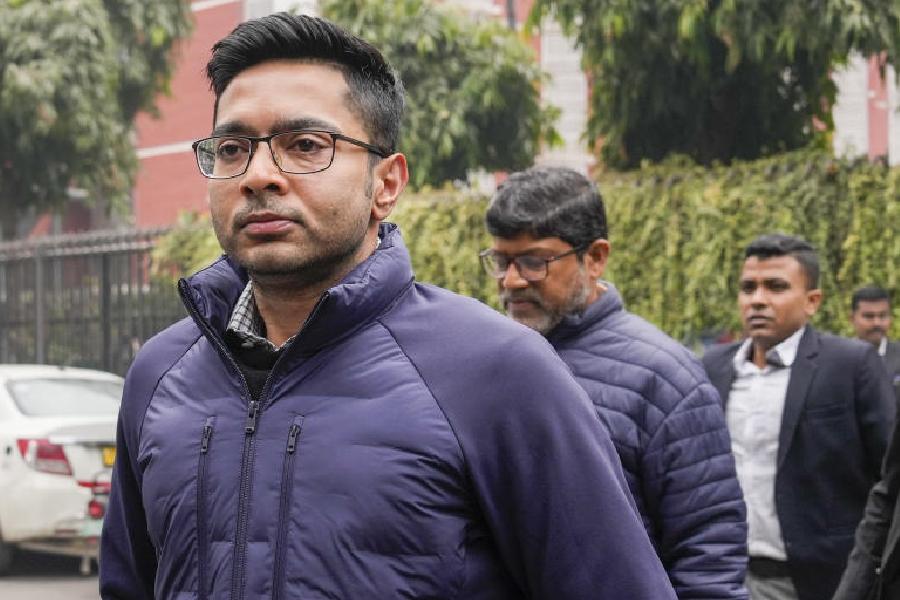The Supreme Court on Monday banned the decades-old “two-finger” test on rape survivors and said anyone violating the directive would be held guilty of misconduct.
The two-finger test is conducted on victims of sexual assault and rape to determine whether they are habituated to sexual intercourse.
Condemning the practice as “regressive” and “invasive”, a bench of Justice D.Y. Chandrachud and Justice Hima Kohli said: “The probative value of a woman’s testimony does not depend upon her sexual history. It is patriarchal and sexist to suggest that a woman cannot be believed when she states that she was raped, merely for the reason that she is sexually active.”
The bench also issued a slew of directions to the Centre and states for compliance of its orders.
The apex court made the remarks in a judgment on a plea of the Jharkhand government in which it challenged the acquittal of one Shailendra Kumar Rai alias Pandav Rai in a rape and murder case. Shailendra had allegedly raped and killed a teenager in Deoghar by setting her ablaze.
“We direct the Union government as well as the state governments to (a) ensure that the guidelines formulated by the ministry of health and family welfare are circulated to all government and private hospitals;
“(b) Conduct workshops for health providers to communicate the appropriate procedure to be adopted while examining survivors of sexual assault and rape; and
“(c) Review the curriculum in medical schools with a view to ensuring that the ‘two-finger test’ or per vaginum examination is not prescribed as one of the procedures to be adopted while examining survivors of sexual assault and rape,” Justice Chandrachud, who authored the judgment, said.
The apex court said a copy of its judgment should be shared with the secretary in the health and family welfare ministry who, in turn, shall transmit copies of it to the principal secretary in the department of public health in each state.
“Any person who conducts the two-finger test or per vaginum examination in contravention of the directions of this court shall be guilty of misconduct,” Justice Chandrachud said.
The bench said whether a woman was “habituated to sexual intercourse” or “habitual to sexual intercourse” was irrelevant for the purpose of determining whether the ingredients of Section 375 of the IPC (relating to rape) were present in a case.
“The so-called test is based on the incorrect assumption that a sexually active woman cannot be raped. Nothing could be further from the truth — a woman’s sexual history is wholly immaterial while adjudicating whether the accused raped her,” the bench said.
The court noted that Parliament explicitly recognised this fact when it enacted the Criminal Law (Amendment) Act 2013, which amended the Evidence Act to insert Section 53A by which evidence of a victim’s character or of her previous sexual experience should not be relevant to the issue of consent or the quality of consent in prosecution of sexual offences.
The bench lamented that in the present case, while examining the victim, the medical board of Deoghar Sadar Hospital conducted the two-finger test despite the apex court deprecating the use of the “regressive and invasive test” in its earlier judgments.
“This so-called test has no scientific basis and neither proves nor disproves allegations of rape. It instead re-victimises and re-traumatises women who may have been sexually assaulted and is an affront to their dignity. The two-finger test or pre vaginum test must not be conducted,” the bench said.
While hearing the Jharkhand government’s plea challenging the acquittal of Rai, the Supreme Court overturned the decision of Jharkhand High Court and upheld the fast track court’s order holding him guilty of rape and murder and awarded him life sentence.
According to the prosecution, Rai had in the afternoon of November 7, 2004 entered the victim’s house in Narangi village and raped her before setting her ablaze. The girl succumbed to the burn injuries on December 14.
The Supreme Court bench said the dying declaration of the girl made it abundantly clear that Rai had raped the girl, poured kerosene on her and set her on fire.
“The cause of death was septicemia, which occurred as a result of the burn injuries. Hence, the victim’s death was a direct result of the injuries inflicted upon her by the respondent. There is nothing on record, which gives rise to reasonable doubt as to the respondent’s guilt.
“The report prepared by the medical board stated that the possibility of intercourse could not be ruled out although no definite opinion could be given in this regard. A lack of medical evidence as to the commission of rape cannot be taken to mean that no rape was committed upon the deceased. Her dying declaration unequivocally states that the respondent raped her before setting her on fire and there is no rule mandating the corroboration of the dying declaration through medical or other evidence, when the dying declaration is not otherwise suspicious,” the top court said.
“We find that the prosecution proved its case beyond reasonable doubt before the sessions court. The high court ought not to have overturned the sessions court’s judgment for the reasons discussed previously,” the bench added.
“While this court does not ordinarily interfere with orders of acquittal passed by high courts, it may exercise its power to do complete justice and reverse orders of acquittal to avert a miscarriage of justice.
“We therefore set aside the high court’s decision dated January 27, 2018 and restore the sessions court’s judgment dated October 10, 2006 convicting the respondent… as well as its order sentencing the respondent to rigorous imprisonment for life for the offence punishable under Section 302 of the IPC and rigorous imprisonment for 10 years for the offence punishable under Section 376 of the IPC. These sentences are to run concurrently. The respondent shall be taken into custody to serve the sentence immediately.”










